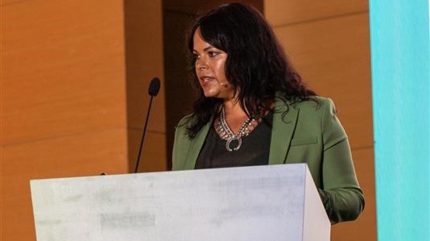
Better Cotton demand and engagement senior director Eva Benavidez Clayton announced the plan at the 2025 Better Cotton Conference held in Izmir, Türkiye.
Eva Benavidez Clayton said: “It is increasingly clear that we need approaches that don’t simply mitigate or reduce harm, but that actively restore the environment. I am therefore pleased to share that over the next 12 months, Better Cotton will complete the remaining steps to become a regenerative standard.”

Discover B2B Marketing That Performs
Combine business intelligence and editorial excellence to reach engaged professionals across 36 leading media platforms.
To achieve this transition, Better Cotton is revising its Principles & Criteria and enhancing the capabilities of its Programme Partners to apply the standard effectively.
Additionally, an outcome-based reporting framework is being developed.
“While Better Cotton’s field level standard is already recognised to cover many of the core tenets of regenerative agriculture, this move will further ensure that farmers who meet our standard are adopting the most commonly agreed regenerative practices.
“This is a natural step in line with our commitment to constantly improve our standard, which reflects the latest scientific insight as well as our enduring focus on the economic and social wellbeing of everyone involved in cotton farming,” Clayton added.

US Tariffs are shifting - will you react or anticipate?
Don’t let policy changes catch you off guard. Stay proactive with real-time data and expert analysis.
By GlobalDataIn the upcoming year, Better Cotton also plans to work closely with local partners to offer farmers customised support in adopting regenerative practices.
The announcement received positive reactions from fellow panellists at the conference.
Indigo Ag cotton head Peter Bunce said: “Thinking about the impact, particularly for the future of the programme, and how you built that into the regenerative programme, hands up, I think this is great progress, well done for doing it.”
“Better Cotton showing an interest in owning regenerative agriculture is very positive,” IPUD president Muzaffer Turgut Kayhan added.
In 2022, Better Cotton detailed its strategy for promoting regenerative agriculture, which was followed by a project in Telangana, India, aiding 7,000 farmers in embracing regenerative methods in 2023.
The RCS, created by the Aid by Trade Foundation (AbTF), is a voluntary standard aimed at enhancing resilience and productivity in small-scale cotton farming through regenerative techniques while enriching farmland quality, rural communities, ecosystems, and farm animal welfare.





